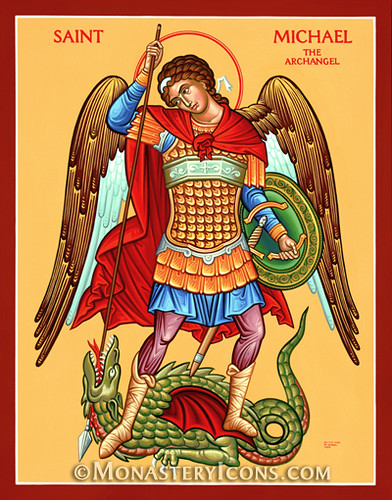argument: Until the late middle ages people looked at the world as a mystery (Boersma 21). By mystery Boersma means a sacramental link between creation and God, that creation participates in God. In other words, the connection, though not identical, is real. Mystery, so Boersma reads the “Platonist-Christian synthesis” (hereafter PCs) refers to the “reality behind the appearances.”
Boersma structures his book around the (neo)Platonic movement of exitus and reditus (the departure from and return to), except exitus now refers to how the church lost the PCs and the reditus on possible steps for regaining it.
It is not Boersma’s goal to defend Platonism as such.
Mystery
Created realities point beyond themselves (carry extra dimension to them)
Symbols just point to something else
Sacraments--the referents coinhere.
A Sacramental world not only points to God but participates in him.
real connection, not just nominal.
The signum points to and participates in the res.
The end of created being lies beyond itself (30).
Creation and Goodness
Creation is hinged upon transcendence.
If unhooked, it loses its goodness (it has to rely on itself).
It must participate in a higher goodness.
The Platonic Heritage
- Rejecting Parts:
- Creation is not automatic nor an emanation.
- argued for resurrection of body
- The Good
Weaving the tapestry
The Fathers’ Christological Anchor
Irenaeus
- God reveals himself publicly in Jesus Christ to all alike.
- The wisdom of the gospel pleads for a unity that doesn’t obliterate differences.
Athanasius: Unity in the Incarnate Logos
- To be made in the image of God means to be rational--Christ must teach us. The image is restored by means of teaching (Boersma 45).
- We are not disparate, fragmented individuals but participate in a common humanity.
- The unity of humanity lies anchored in the Word.
Gregory of Nyssa: Universals and Particulars
- universals refer to what is common, particulars to what is individual.
- Universals anchor the particulars.
- The deity in which the Father/Son/Spirit share implies a common activity. This is why the three men analogy--James, John, Peter--breaks down, for they all have different actions.
Theme: Our particular humanity depends on the participation of humanity in Christ (51).
Unraveling the Tapestry: The Medieval Revolt Against Nature
- Juridicizing the Church
- Gregorian reform
- For earlier fathers, sacred actions are performed in the church, but everyone is subject to God. God was directly working in the sacred actions.
- earlier theology regarded sacramental power as within the life of the church. Now it is causally top down.
- Discovery of Nature
- earlier sacramental thought held a link between heaven and earth. There was the unity of the church (res) and the sacrament to which it pointed.
- The Berengar Dialectic
- Berengar said we spiritually participate in the res.
- His opponents said we physically participate in the sacramentum.
- Both sides widened the gap between heaven and earth.
- Scripture, Church, Tradition
- The earlier fathers said church and Scripture coinhere. They are not two separate sources of authority.
- Dialectic of Wyclif: Catholics responded to him by pitting Church against Scripture.
- Nature and the Supernatural
- The Counter-Reformation introduced the notion of “pure nature,” which meant human nature before any prior movement of grace. Human nature is walled-off.
Cutting the Tapestry: The Two Scissors of Modernity
Univocity of Being
- Scotus said being was used in a univocal way. Being is now “unhooked” from God.
- If being now applies to God and creatures in the same way, then it has become an overarching category in which both God and creation “share” (75).
- Sacramentum no longer receives res from God’s own being.
Voluntas
- God no longer relates to creation by gift, but by will.
- The world can only relate in an “external” way.
- The late medieval emphasis on divine decree cut the link between God’s will and God’s knowledge (79).
Younger Evangelicals
After Late Medievalism the Reformation struggled to reweave the tapestry. This isn’t entirely its fault. Most of the Reformers were philosophical realists, but it’s hard to keep together what has long since been sundered.
The Great tradition had a Christological anchor: a vertical link between God and humanity where we receive our being by participation in the Logos (89).
REDITUS: RECONNECTING THE THREADS
Eucharist as Sacramental Meal
If our connection with God is an external or nominal one, then there is little room for sacramental participation.
De Lubac and the Eucharist
There is a real transubstantiation, but it is when the congregation is changed into the body of Christ. This leads de Lubac to posit a threefold body: the bread, the congregation, Christ.
St Paul seems to operate off this as well.
“And is not this bread [Body¹] we break a participation in the body [Body..n..] of Christ?” (1 Cor. 10:16b).
“Because there is one loaf [Body¹], we, who are many, are one body [Body²], for we all partake of one loaf [Body¹]” (1 Cor. 10:17).
The question is what does Body...n refer to in 1 Cor. 10:16b? It could refer to Christ himself. It could also refer to Body². Or as de Lubac says, it is a three-fold body so there isn’t a hard and fast separation.
sanctorum communio: can refer to either communion of saints or communion of holy things. Communion of holy things was related to communion of saints (115).
The Shifting Corpus
The word verum moved from the ecclesial body [Body²] to the eucharistic body [Body¹]. “Christ’s body in the Eucharist came to be seen as the true body” (de Lubac, quoted in Boersma 117).
The Church began to focus more on the Eucharist and less on communion within the ecclesial body.
